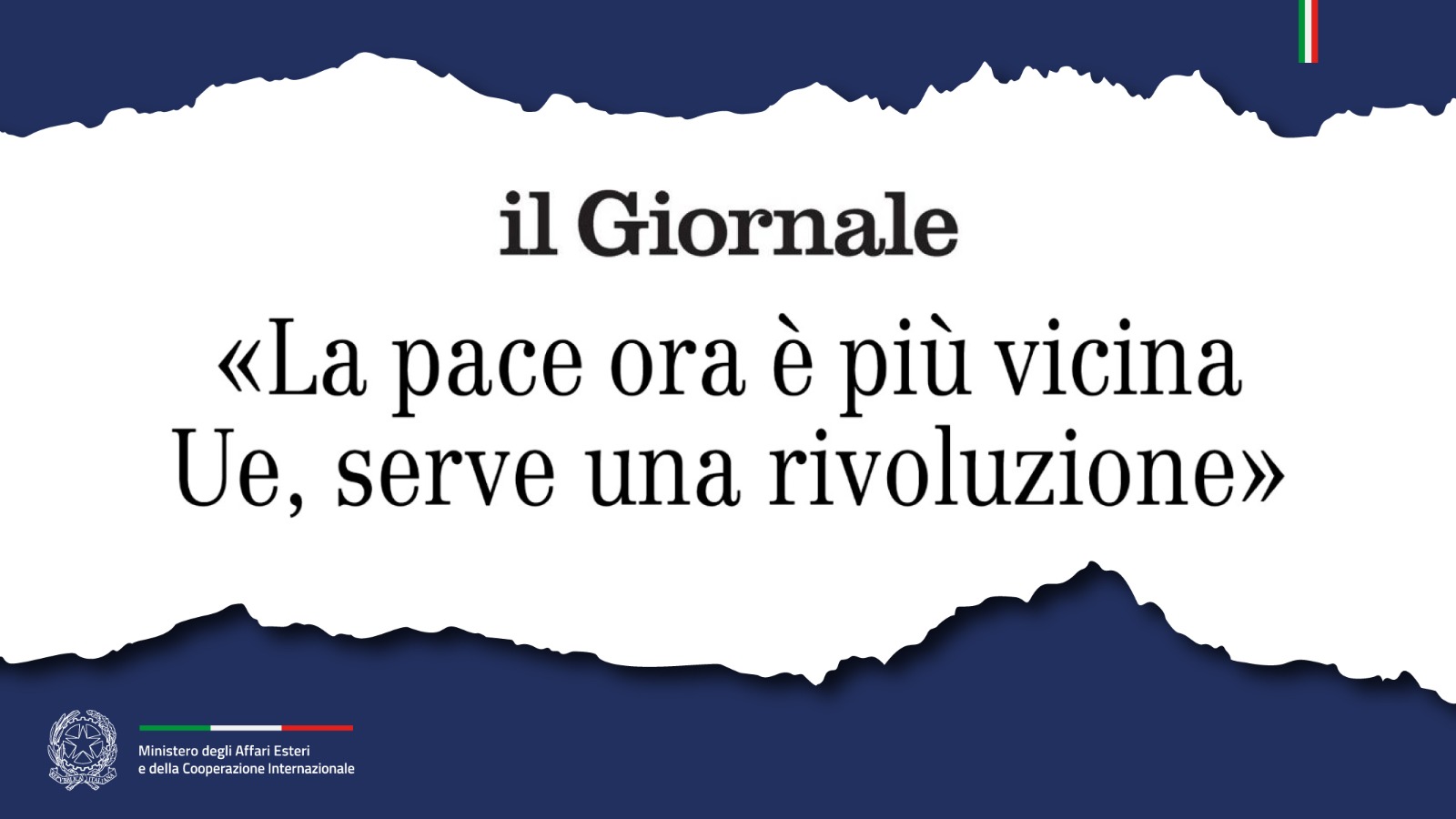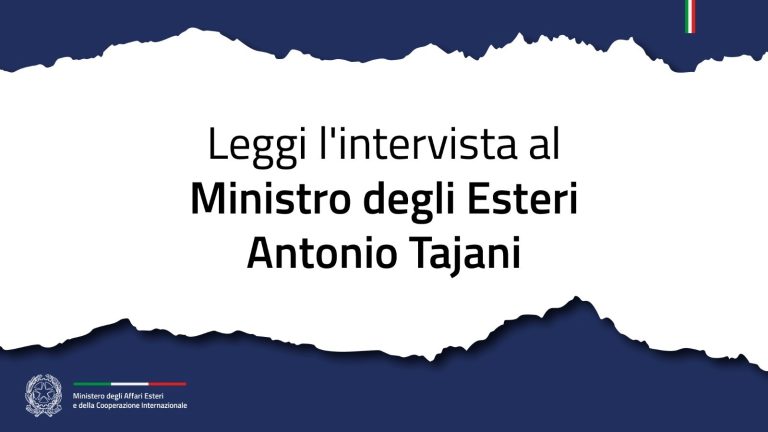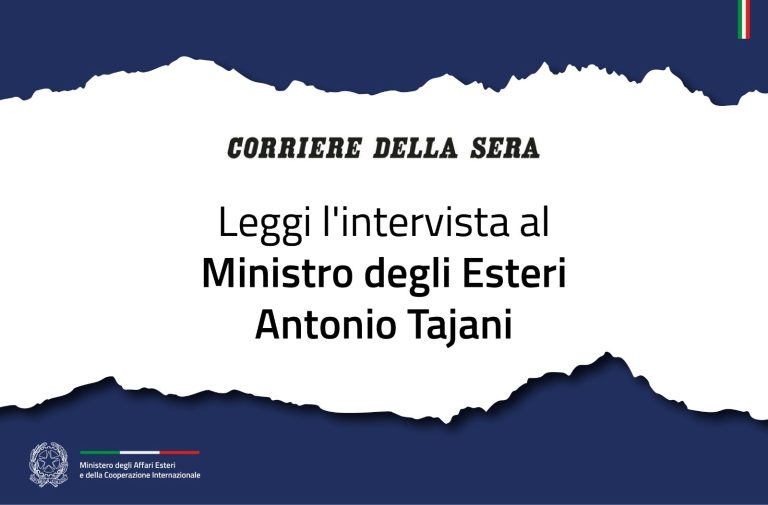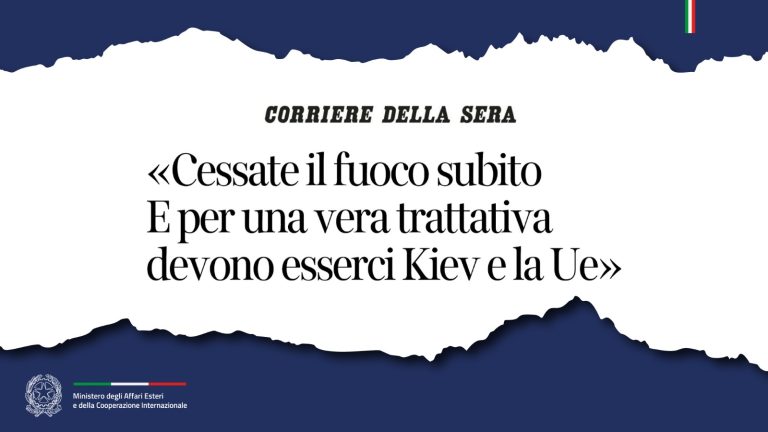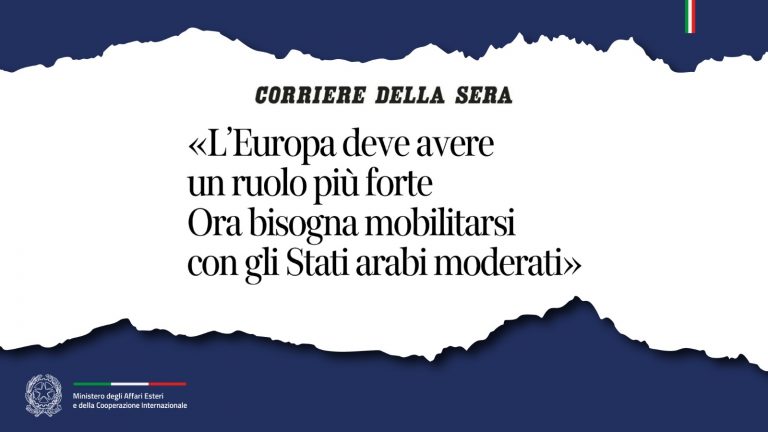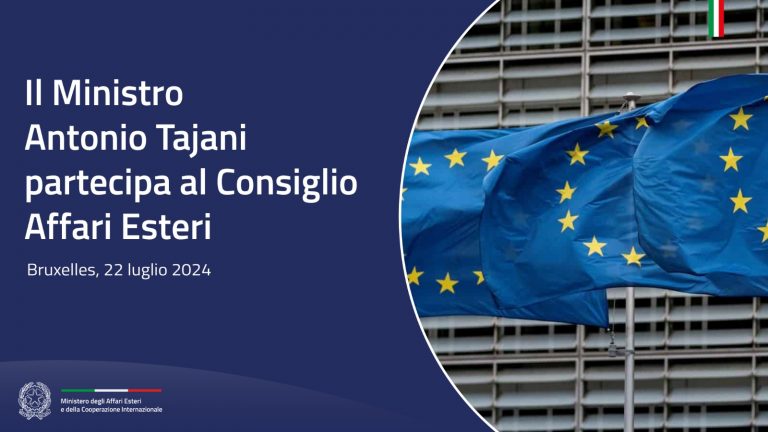Antonio Tajani is about to depart for Valencia, Spain, where the EPP Congress opens today. In his heart and mind is Pope Francis’s last appeal for peace, that meeting on two small red chairs in St. Peter’s between Trump and Zelensky, held during the Pope’s funeral, and hopes for an agreement with Putin. But also the efforts needed to achieve a ceasefire between Israel and Hamas, concerns about foreign trade and tariffs, the competitiveness of Italian companies, and immigration. Overarching all of this is the role of Europe—its unity and rearmament. These are just some of the issues that the leader of Forza Italia is preparing to discuss and debate with the leading representatives of the other European People’s Party member parties. During the three-day congress, the Italian Deputy Prime Minister and Minister of Foreign Affairs will contribute to defining the political line of the largest party in the European Parliament. Tajani has been Vice-President of the EPP continuously since 2002 and is now ready for reappointment, alongside presumptive leader and sole candidate Manfred Weber.
Forza Italia, the Italian representative of the EPP, has prepared for the congress with a series of initiatives across all sectors. What is your first message?
“We, the European People’s Party, aim to be guarantors of stability in Europe, launching a peaceful revolution to reform the Union, making it more efficient, particularly in terms of the single market and energy, and to give it more influence. The EPP must build a new Europe, to cut the ground from under the feet of populists and to counter the extremism of both the right and the left. We need an institutional leap forward; we cannot remain idle”.
And how should the EU change?
“Through the direct election of the President of the Commission, who should also preside over the European Council, and by giving more powers to Parliament, starting with the right of legislative initiative. We must also reduce the bureaucratic burden and excessive regulation: we propose that for every new rule introduced, two existing ones should be scrapped. We will initiate a wide-ranging debate to bring Europe closer to its citizens. On climate change as well, we must protect the environment while keeping humanity—the heart of Creation—at the centre, in line with Pope Francis’s message. Too often, social issues have been sidelined in favour of a pantheistic vision like that of Timmermans or Greta Thunberg”.
You’ve just attended the funeral of Pope Francis, which brought together world leaders, and we saw the dialogue between the US President and the Ukrainian President in a corner of the basilica. Are there new hopes for peace?
“Christianity is the religion of peace, but always a just peace, as Saint John Paul II said. We are working on all fronts to achieve it—from Ukraine to the Middle East, from Iran to Sudan. The meeting between Trump and Zelensky was the Pope’s final gesture for peace, a significant step forward”.
Would the American proposal Ukraine is being asked to accept lead to a “just peace”?
“I want to remain optimistic, but now everything depends on the Russian President, Putin. The American proposal can be accepted if it respects territorial integrity and is not a capitulation”.
But there are calls for recognition of Crimea as Russian.
“Progress must be made on all sides, but what matters is that dialogue has resumed”.
And for peace in the Middle East, what developments can we expect?
“I was in Egypt to support the mediation effort by that Arab country between Israel and Hamas. The war must end; we cannot continue to witness so many deaths every day. We must now examine Hamas’s proposal to release all hostages in exchange for a five-year truce”.
Is it realistic?
“An agreement with Hamas must be found, but Hamas cannot be the future of Palestine. Only a renewed Palestinian Authority can serve as the cornerstone of an agreement for two peoples and two states. I also discussed this at the Vatican funeral with Palestinian Prime Minister Mohammad Mustafa”.
It was a significant funeral in this historical moment, especially since it brought together all sides of the major conflicts.
“These were only informal meetings, however, because we had to respect the religious nature of the Pope’s funeral ceremony”.
Talks between the United States and Iran in Rome about the nuclear programme were also important for peace. What role is Italy really playing on the international stage?
“It has been demonstrated that Rome is a place of peace and dialogue. Even during the funeral, the capital rose to the occasion with extraordinary organisation in just a few days, which was recognised by all countries. Italy is a leading player, at the forefront on many fronts”.
You are also Minister for Foreign Trade and will be speaking at the EPP Congress about Europe and the competitiveness of our businesses. Are there signs of progress on tariffs, and can the Meloni government help support a positive outcome?
“Dialogue is necessary, and the atmosphere seems calmer. We must never give up on dialogue, always seeking practical solutions. In this sense, too, Italy’s role is increasingly central in both the world and Europe”.
The agreement between CDU/CSU and SPD for the new Merz government in Germany places that country back at the heart of Europe after a deep crisis.
“It will be fundamental. We need more Germany in Europe, as it is our main interlocutor. Our economies are interconnected—we are the first and second manufacturing powers in Europe. Just as parties like the DC and CDU have strengthened dialogue between states in the past, Forza Italia will do the same with the Merz government”.
In Valencia, you’ll be giving three speeches.
“Yes, as outgoing Vice-President standing for re-election, as leader of Forza Italia, and to present our resolution on business competitiveness. I begin today with the preparatory political assembly, where Dolors Montserrat will be appointed Secretary-General of the EPP”.
Within the governing coalition, the three parties have differed on several European issues—from rearmament to tariffs. Are you able to govern without major issues?
“The centre-right is united—those on the left should not entertain too many illusions. It’s clear that FdI, FI and the Lega are three distinct parties, each with its own identity, but we share common ground and take decisions together. We in Forza Italia have a Christian, liberal, pro-justice, pro-European and Atlanticist identity, which we have always maintained with consistency. Since 1994, when Silvio Berlusconi founded the centre-right, we’ve been united, even though we belong to three different families in the European Parliament. Our differences do not undermine the alliance, and when it comes to the major issues, we always vote in the same way”.

